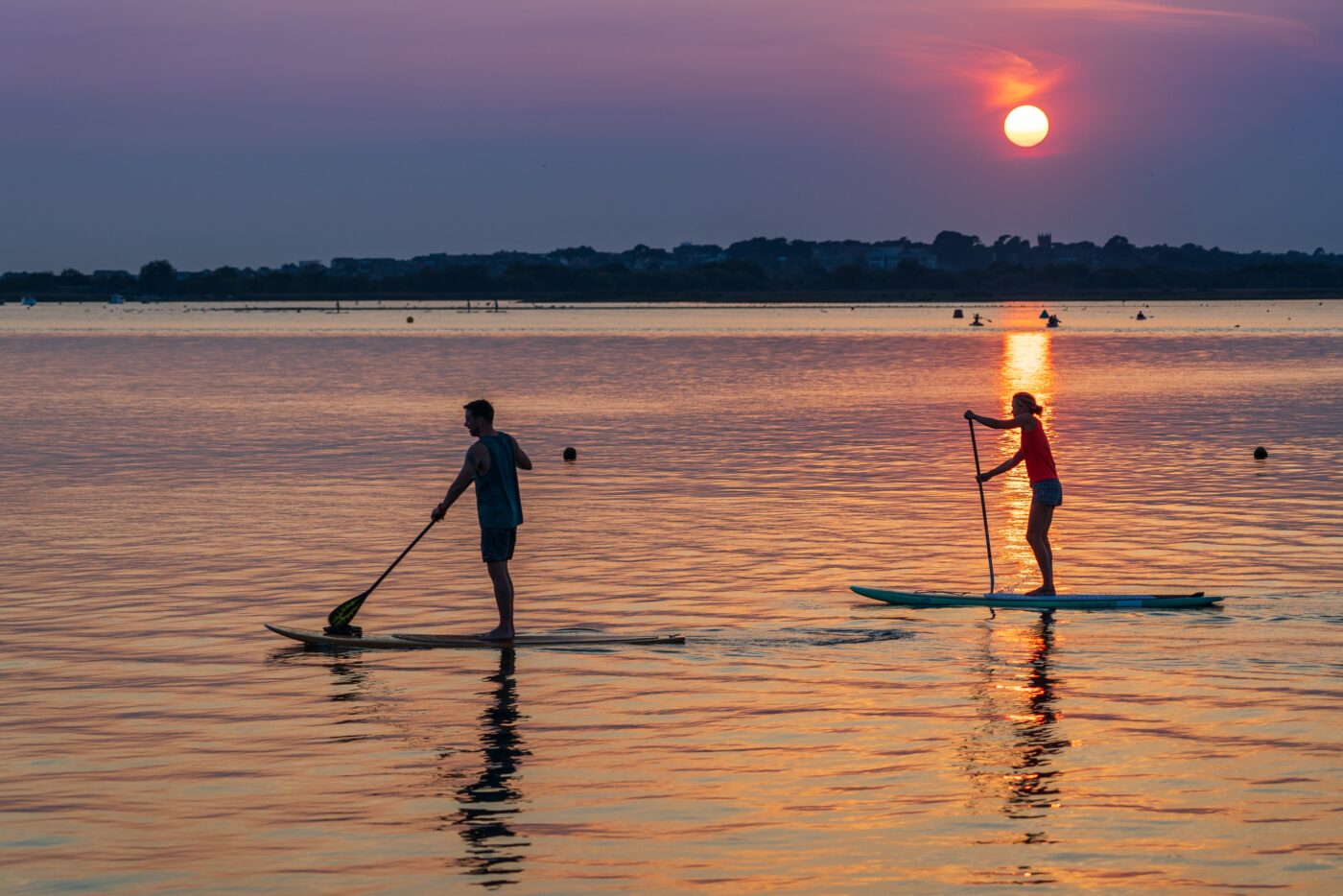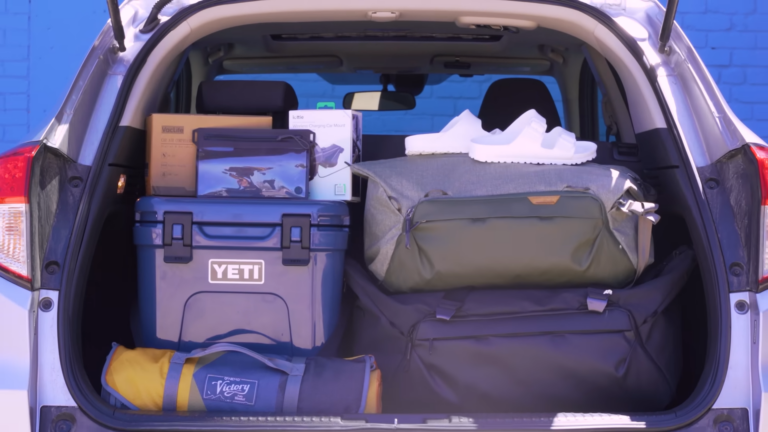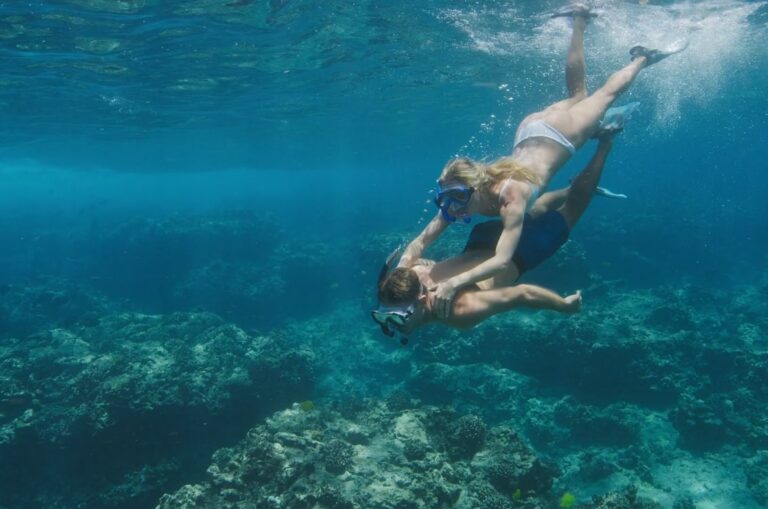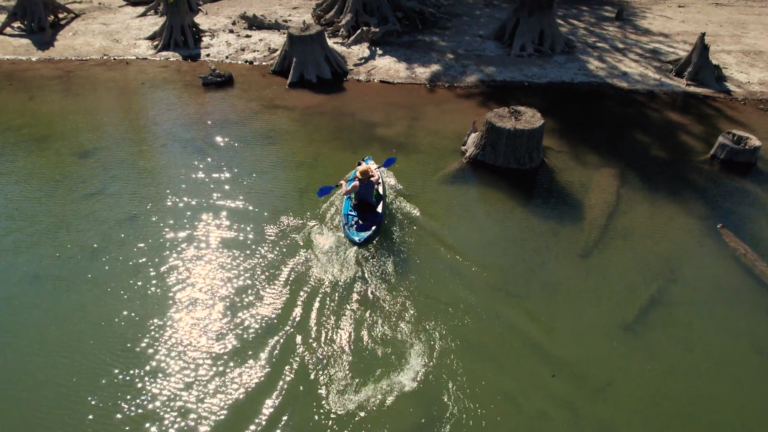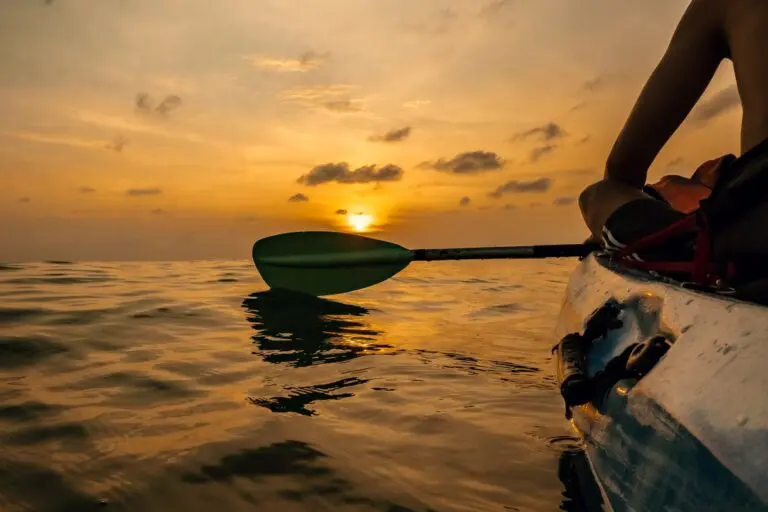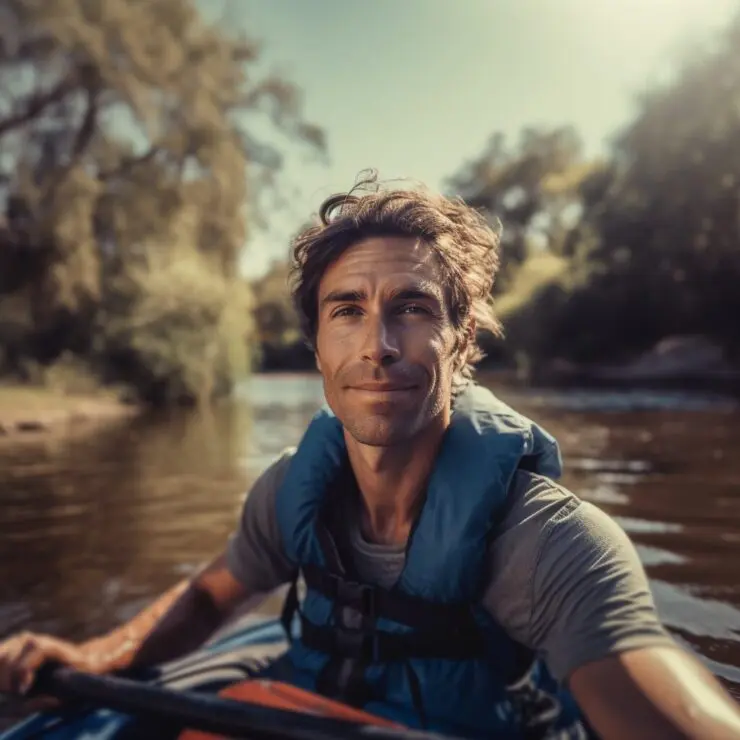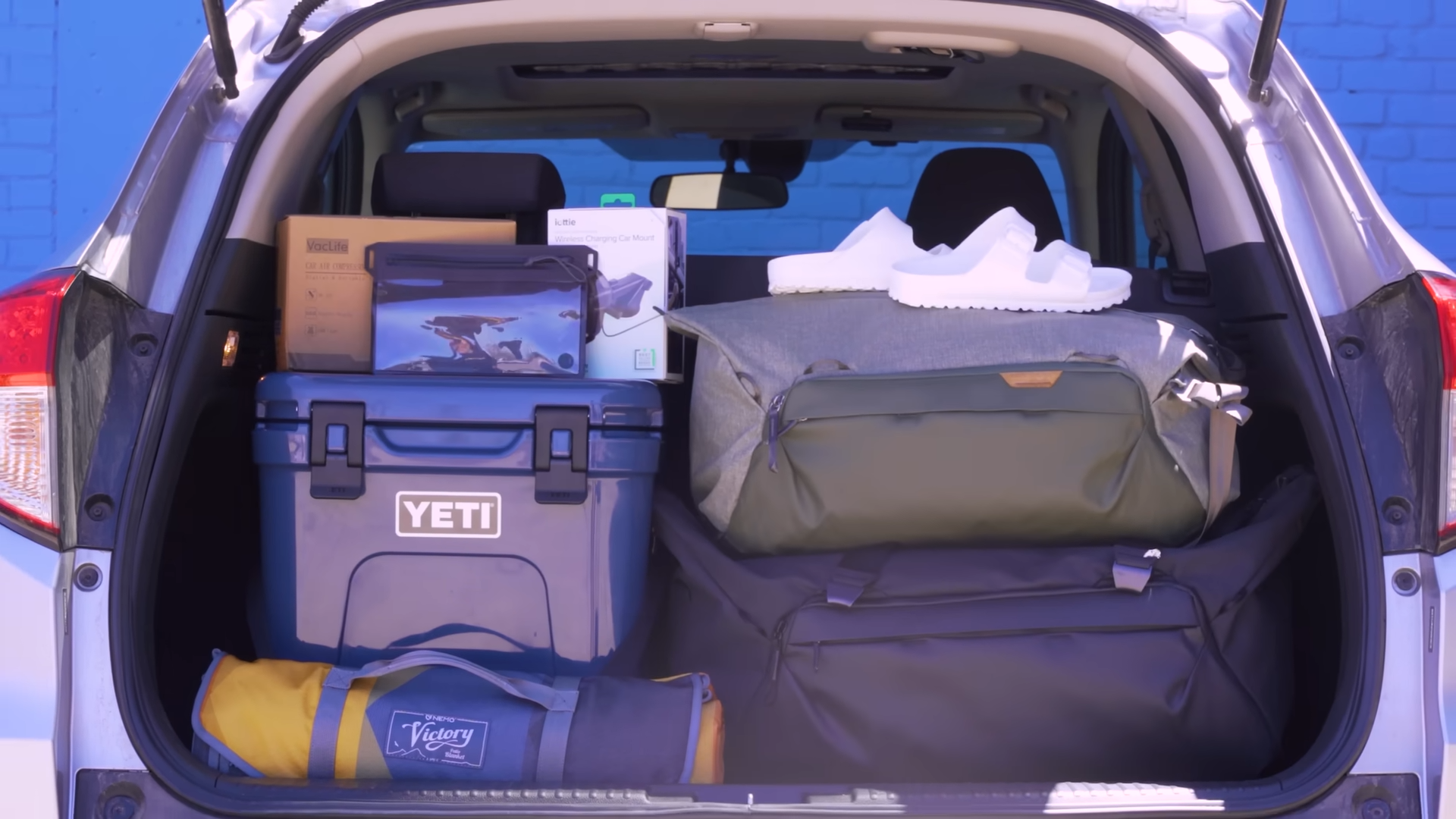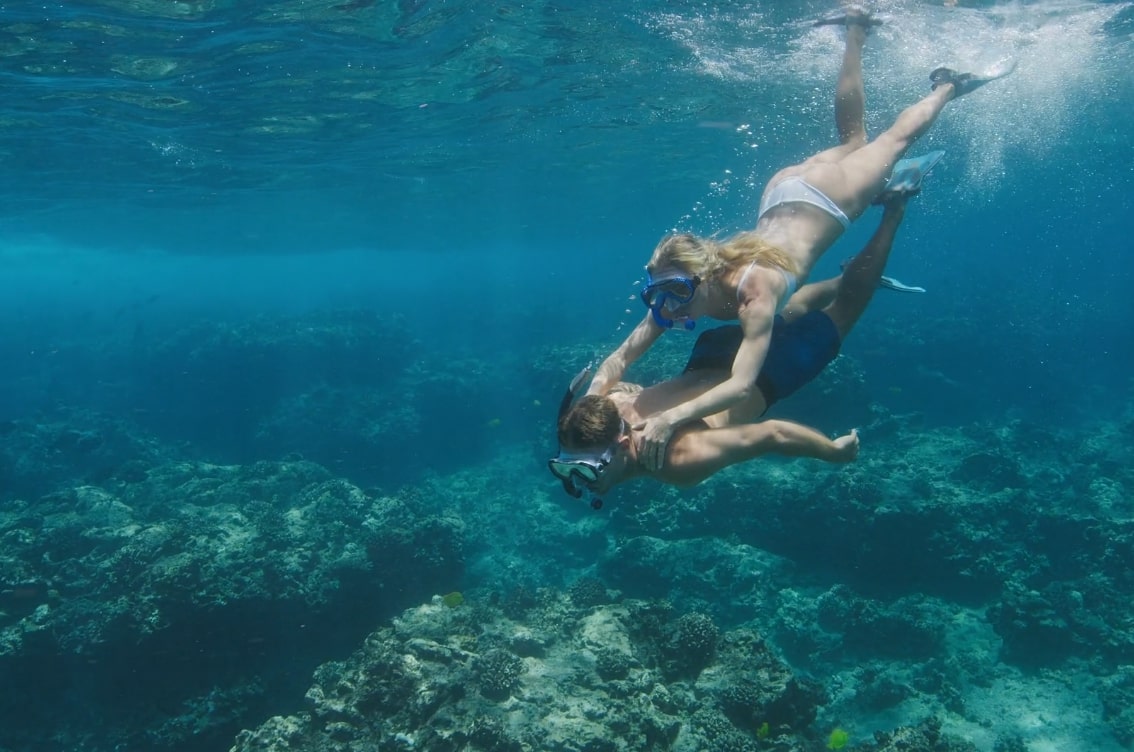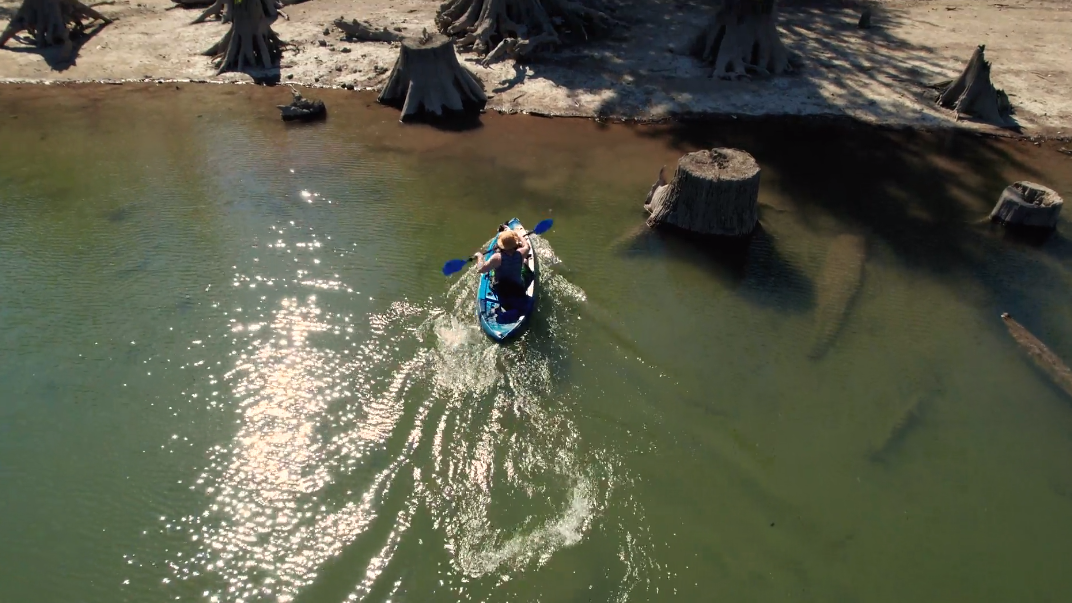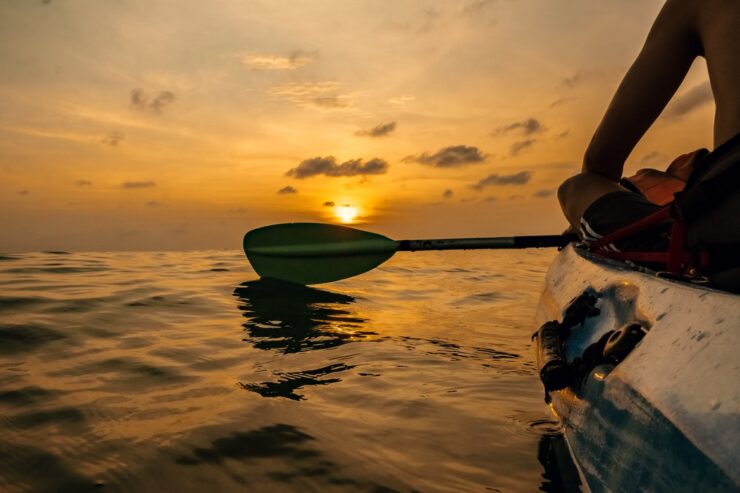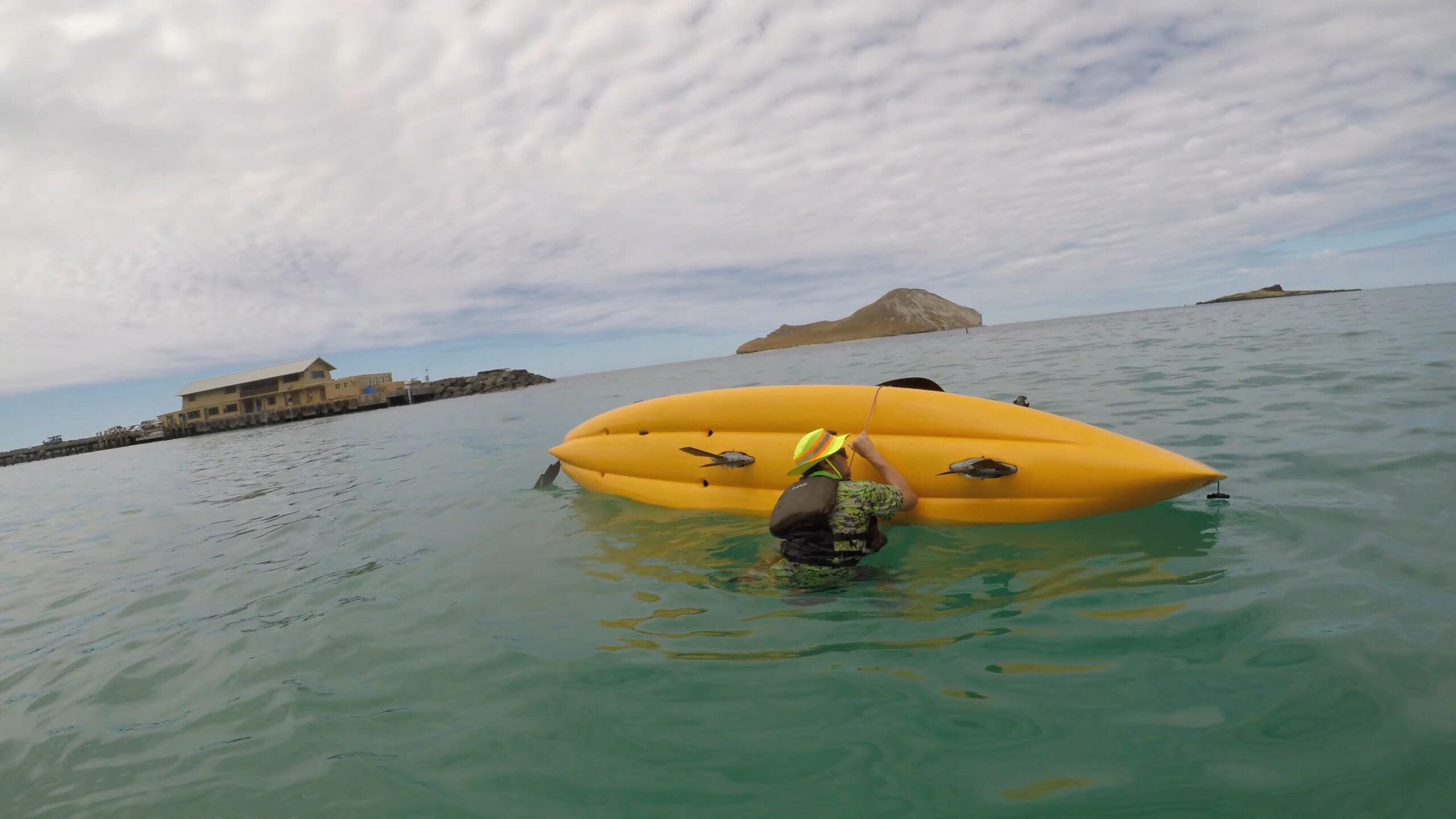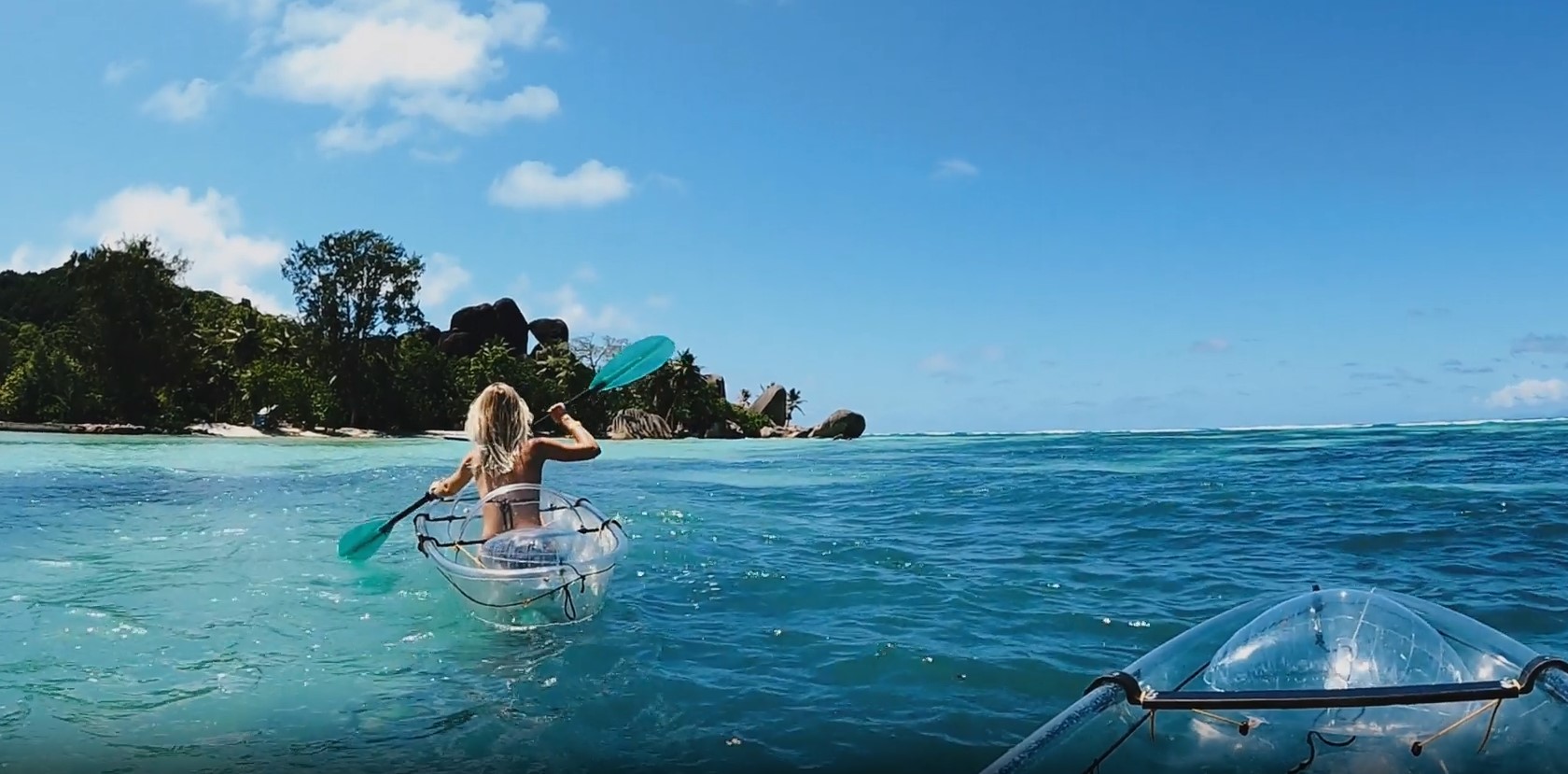Ever been paddleboarding before? Here’s what to expect the first time you head out onto the water on a paddleboard. After all, forewarned is forearmed as they say!
Table of Contents
ToggleYou might be nervous
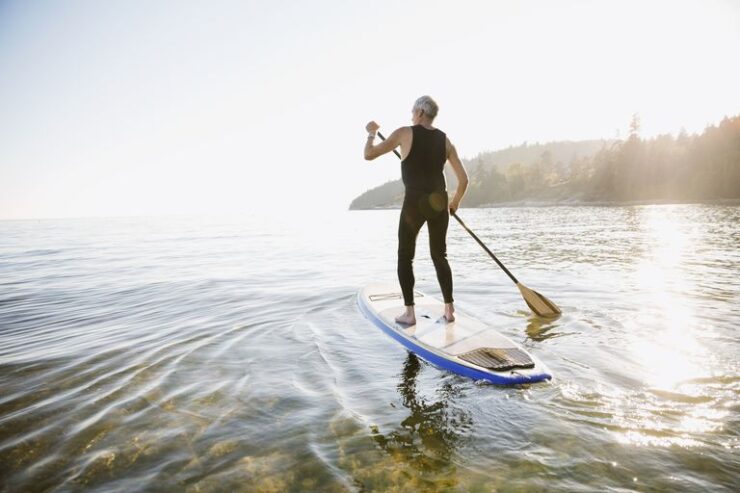
It is perfectly normal to feel nervous before paddleboarding for the first time. After all, standing on the water on what looks like nothing more than a large plank is a daunting, unnatural thing to do.
The good news is that paddleboards are designed to be virtually unsinkable, and beginner boards are very stable. Not only that, literally millions of other people have been where you are; all paddleboarders were beginners once. They learned to paddleboard successfully, and you will too. Try to think of any nervousness as happy excitement; you are about to embark on a new activity that will literally change your life.
You are going to wobble – a lot!
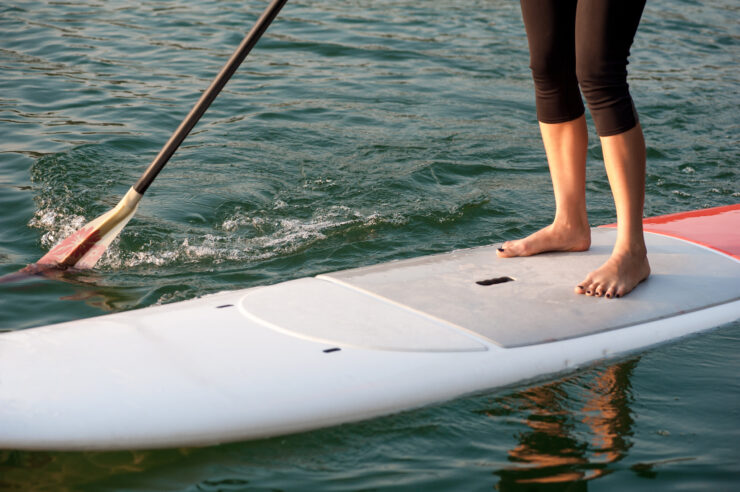
Paddleboarders often talk about how stable their boards are. This makes it sound like paddleboards are as solid underfoot as a cruise ship. This is not the case! While paddleboards are more stable than most surfboards and kayaks, they still wobble when you shift your weight. Once you stand up, even small wobbles are magnified, and that can lead to a lot of legs shaking.
The good news is that, with time and practice, those wobbles will become perfectly normal, and they won’t make you panic. In fact, you’ll learn to anticipate and allow for them as you glide effortlessly on the water.
Remember this; every wobble is a training experience for your muscles and nervous system. Each time you wobble, you are learning to become a better paddleboarder.
Of course, wobbling often leads to falling in…
You’re probably going to fall in
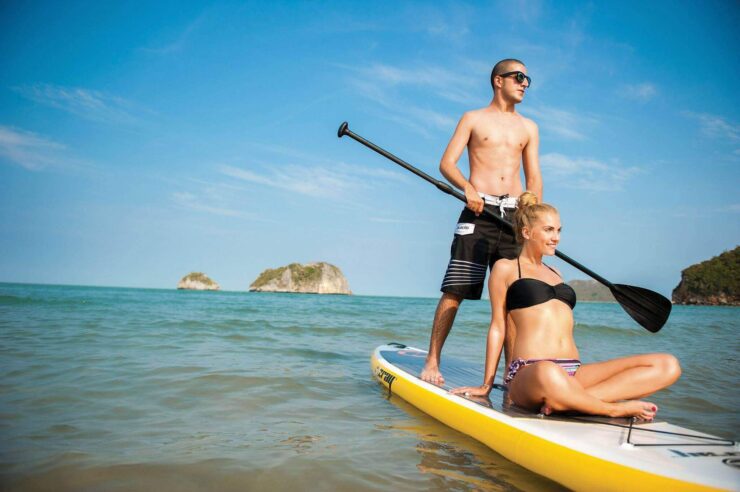
Unless you have the balance of a gymnast, you are probably going to fall into the water during your first paddleboarding experience. This is not only normal, but it’s also pretty much expected. You may even spend more time in the water than on it at first. That’s okay; it’s all part of the learning process.
Most novice paddleboarders start by riding on their knees, and then, when they feel ready, make the transition to standing. This might take a few minutes, or a couple of paddleboarding excursions. There is no rush to stand up – it’s not a race.
Once you are ready to stand up, you might fall off as you try to get up, or a few seconds after successfully standing. You might even fall off after you’ve been paddling a while and think you’ve mastered paddling on your feet. You could even be lucky enough not to fall off today, but that doesn’t mean you won’t fall off tomorrow! A personal floatation device is a must for this reason.
If you accept that falling off is a part of paddleboarding, it will be less of a shock when it happens. Dress accordingly so that, when you do fall in, you are comfortable and safe. A bathing suit is fine for warm water and weather, but a wetsuit may be a better choice when it’s colder. Just get back on your board and try again.
Incidentally, it’s not just beginners who fall off their paddleboards; experienced boarders fall in too. SUP is one of those sports that you never master, and learning new skills is almost always accompanied by mistakes and mishaps. It’s only by pushing yourself that you get better.
You may get tired quickly
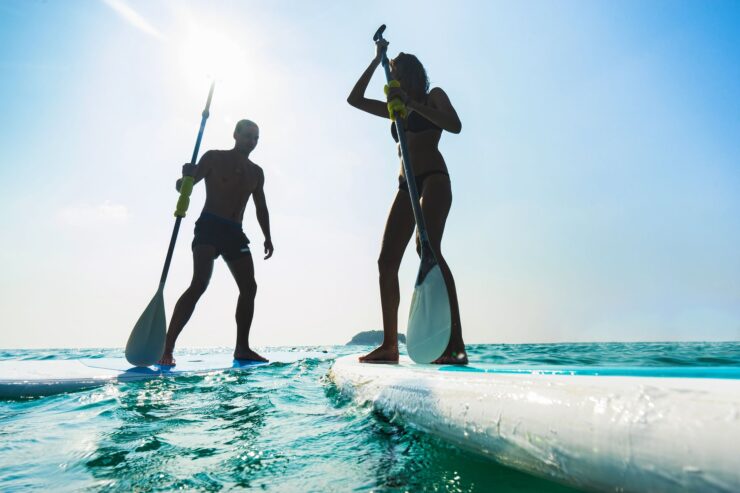
Even very fit people find paddleboarding hard work their first time out. That’s not because it’s a very energetic sport. It’s just that, at first, your movements will be very uneconomical, and that means you’ll use a lot of energy.
For example, holding your body rigid as you struggle not to fall in, keeping your paddle in a death-grip, getting back on your board for what seems like the tenth time in five minutes, and paddling using your arms instead of your whole body will quickly drain your energy.
The good news is that, as you become more proficient, paddleboarding gets much easier. You can still turn it into a workout if you wish, but just cruising along at a comfortable speed uses very little energy. Where you were once exhausted after less than an hour on your board, you’ll soon find you can paddle for several hours at a time without getting tired.
You’re probably going to get hooked
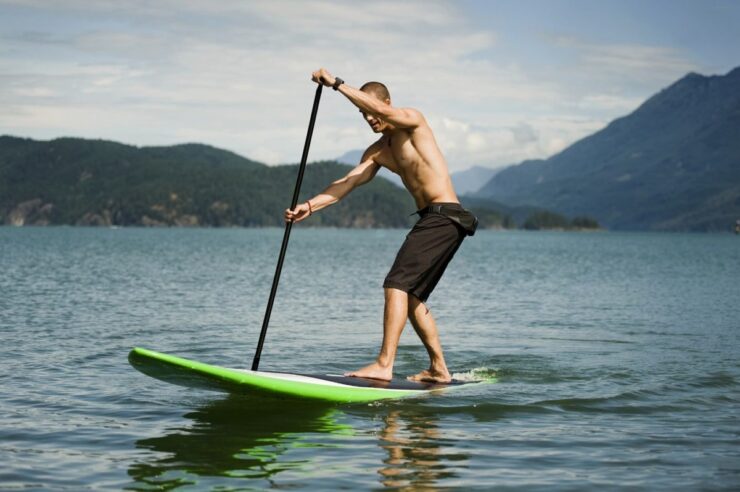
Once you stand up on a paddleboard for the first time, there is a good chance you’ll be hooked for life. You’ll realize that, yes, you CAN do this, and that it feels fantastic! SUP is the perfect way to explore almost any waterway, is a great way to unplug and destress, and provides a wonderful way to connect with nature.
Once you can paddleboard with reasonable proficiency, you’ll be able to explore your local lakes, rivers, and coastlines or even go SUP on vacation. Paddleboarding is an excellent activity for individuals, families, and groups of friends.
Most paddleboarders go on to buy their own boards to best suit their needs so that they can get on the water whenever the weather is good. You may even start paying more attention to the weather reports, and especially wind and wave forecasts, so you can make sure you are ready for the next perfect paddleboarding day. You can paddleboard all year round too – although you may need to wrap up warm in winter.
The bottom line is that once tried, paddleboarding is hard to quit. The first time you stand up on a paddleboard will be transformative!
Don’t Be Scared: SUP Is FUN!
Like any new experience, paddleboarding for the first time can be a little daunting. But, very quickly, you’ll master the basics and start enjoying all the advantages and benefits this popular, rapidly growing water sport has to offer. Yes, you will probably fall in at first. You may even think that standing on a paddleboard is impossible. But, with a little patience, practice, and perseverance, you CAN do it. And the first time you stand up on a paddleboard? That’s a memory that will last forever!
Adelaide Gentry, a seasoned kayaking enthusiast and expert, is the driving force behind KayakPaddling.net. With over a decade of experience navigating the world’s most challenging waterways, Adelaide combines her passion for adventure with a deep knowledge of kayaking to provide insightful and practical guidance for paddlers of all levels.
Related Posts:
- 10 Best Inflatable Paddle Board 2024: My Top 10 iSUP…
- 16 Best Kayak For Beginners 2024 - Kayaking Adventure Gear
- 15 Best Baitcasting Reel Under $100 2024 - Improve…
- 17 Best Trolling Reels 2024 - Enjoy your Fishing Adventure
- 7 Benefits of Stand Up Paddle Boarding
- Inflatable Versus Rigid Paddleboards - Which One…

